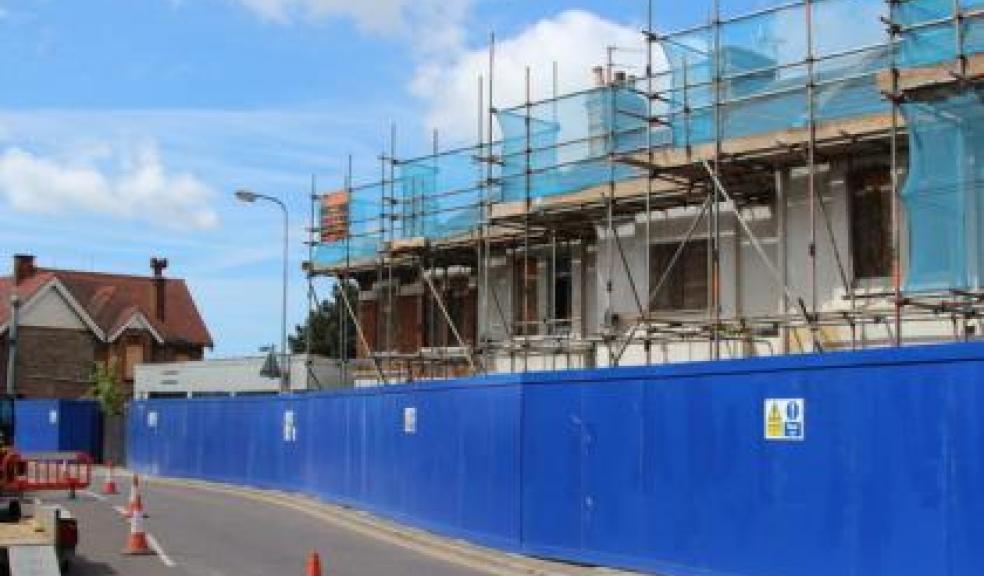
SW construction market slowing post EU vote
The majority of UK construction sectors are experiencing a slowdown in growth, as Brexit uncertainty continues to cause concern, according to the latest Royal Institution of Chartered Surveyors (RICS) Construction Market Survey.
While 26% more chartered surveyors reported that construction workloads in the UK had risen, rather than fallen this quarter, this is a significant slowdown on the trend growth over the previous three years.
The Midlands remains the engine of growth in UK construction, with 30% more respondents reporting a rise in activity rather than a fall while the London/South East block has seen growth levels moderate significantly due largely to a slowdown in activity in the private commercial sector.
Private housing saw the most significant growth compared to other construction sectors in the South West with 33% more chartered surveyors reporting workloads had risen rather than fallen. This was closely followed by the private commercial sector at 31%.
In the infrastructure sector, 19% more contributors reported a rise rather than a fall in workloads in the region and respondents expect the road and rail subsectors to be the drivers of growth over the coming 12 months. Meanwhile, activity in the public housing and private industrial sectors continue to underperform all others.
Jeremy Blackburn, RICS UK Head of Policy, comments: “It seems that when it comes to private housing, we are indeed the builders. The Government’s commitment to this critical sector has clearly had a positive impact on growth. However, what the figures mask, is the disparity between the kinds of properties that are being built. When the Communities Secretary publishes his Housing White Paper later this month, he must deliver a housing programme that benefits more than the just the fortunate few. We need to shift the rhetoric away from home ownership and encourage the building of affordable rental properties in the suburbs and our cities.
“While the Midland’s engine - driven by high speed rail programmes - is building up steam, we expect the Chancellor to initiate a wave of smaller infrastructure schemes, whether new build, repair or upgrade, across the transport network. As the UK prepares for the changes ahead, the ability to move people, goods and services more effectively will be vital and we expect locational investment in road, rail, air and sea ports. Government must continue to reassure and encourage investors in the coming months so that improvements to UK infrastructure can continue.”
Looking further ahead, while respondents highlighted generally subdued growth over Q3 they are more optimistic about the year to come with 58% more respondents forecasting a rise in workloads rather than a fall. On average, contributors expect activity to rise by 3.0% across the South West over the next twelve months.
Employment is expected to continue to grow at a modest pace with 35% more respondents forecasting a rise rather than a fall.
However, both workload expectations are still lower than pre-Q2 levels and anecdotal evidence from respondents suggests that uncertainty relating of the UK’s future relationship with Europe is still causing them concern regarding their future workloads.
In Q3, financial constraints across the UK remain the most significant impediment to growth, anecdotally linked to uncertainty, with 70% of contributors reporting such constraints to be holding back growth. Planning and regulatory delays are the next most substantial factor with 53% of respondents citing problems in this area.
In the South West growth in output costs rose at a more moderate pace with a net balance of 32% of contributors seeing a rise rather than a fall over the quarter. Meanwhile, input cost continued to increase firmly with a net balance of 47% of respondents reporting a rise.
Simon Rubinsohn, RICS Chief Economist, commented: “The picture painted by the Q3 survey is one of subdued growth, and although expectations have improved following the immediate shock of the vote to leave the EU, anecdotal evidence from respondents suggests that much uncertainty still remains on the outlook for the year ahead”













